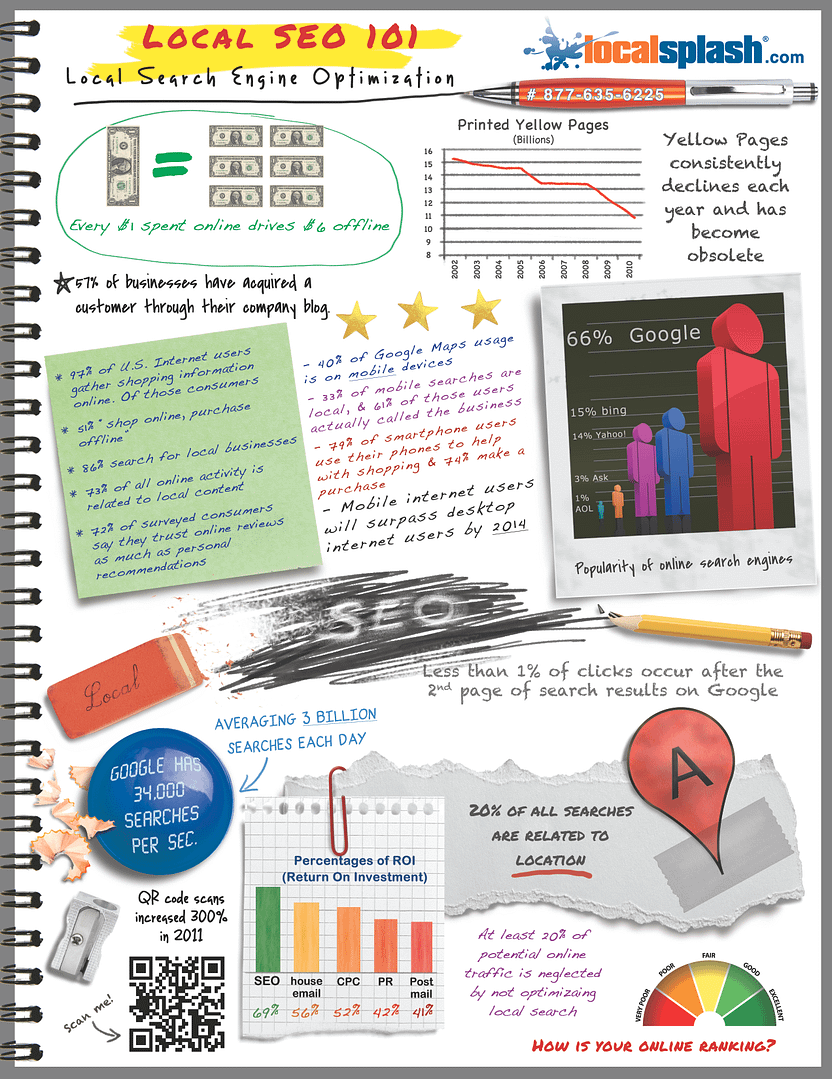Check out our first Infographic, filled with local SEO statistics and other facts.
Key Takeaways for you to repost/tweet/share:
- 40% of Google Maps usage is on mobile devices
- 33% of mobile searches are local and 61% of those users actually called the businesses
- 97% of U.S. Internet users gather shopping information online, of those, 86% search for local businesses
- 73% of all online activity is related to local content
- Less than 1% of clicks occur after the 2nd page of search results on Google
- 20% of all searches are related to location


